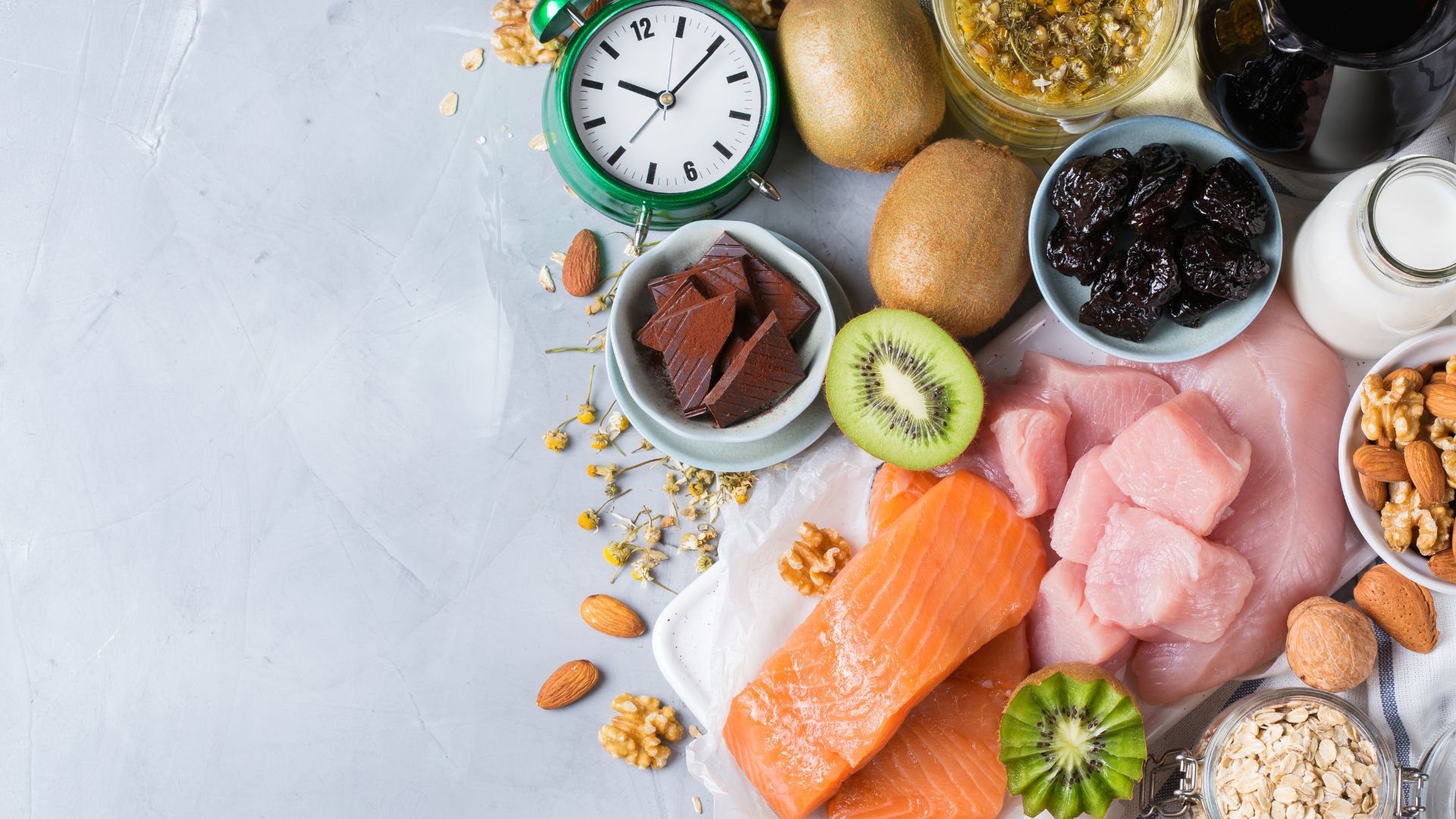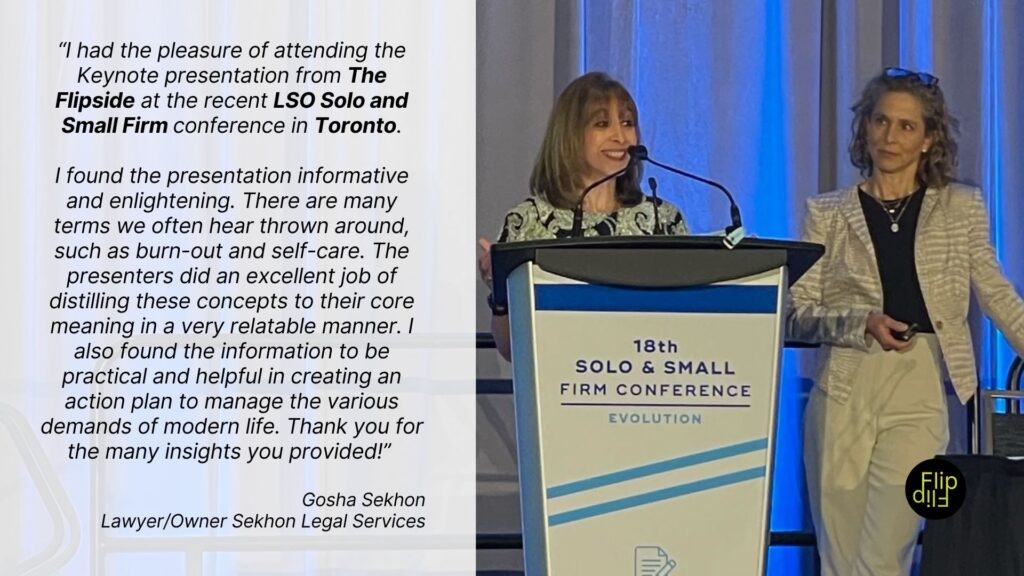Sleep
Eating for optimal sleep

When I travel with my family, my daughter and I love to visit local bookstores to browse books written by local authors or perhaps to find Canadian books in remote locations (like finding “How to Calm your Mind” by Chris Bailey in a secluded bookstore in the Scottish Highlands!). It was in one of this bookstore visits that I stumbled into a book called “Sleep Well”, by Irish author Fionna Brennan, which of course I bought out of curiosity and because, as you know by now, Sleep is one of The FlipSide’s six foundations of health and productivity.
Fionna’s book is an eight-week program (that includes hypnotherapy audios) to optimize your sleep, and I decided to do the program at the beginning of the summer. Now, for someone who loves to read and hates to be told how to read a book, it took all of my inner strength to actually follow the instructions and read one chapter per week…but to everyone’s surprise (specially my husband who claims that I never read the instructions)…I not only read the instructions, but I actually followed them.
One of the topics discussed during the program (and no, I won’t tell you anything else about the program because the book is worth buying and reading!) was that of the connection between food and sleep. As usual, when it comes to food, the topic goes above and beyond the “what” to eat and touches on the “when” and the “how”, as well.
The “When”
If you have read anything about sleep, you are likely aware that there is a consensus among sleep scientists that for optimal sleep our last meal of the day should be eaten between two or three hours prior to our bedtime (three hours being the optimal time).
As mentioned by the Sleep Foundation, research has shown that having a large meal before bedtime can have an impact on the amount of time it takes a person to fall asleep, while a meal of complex carbohydrates, healthy fats and protein three to four hours before bedtime can reduce the time it takes to fall asleep and stay asleep.
This sometimes is easier said than done, especially when you are close to a deadline at work or when your kids’ extracurricular activities end late in the evening. But if you can, begin by setting up your ideal sleep schedule and then use that to identify the ideal and realistic time of your last meal of your day. Play with it as needed to make sure you can do it consistently and don’t get frustrated when life happens!
The “How”
The other aspect of food and sleep relates to keeping a regular eating schedule. We have talked about the need to have a regular sleeping schedule as one of the best things you can do to optimize your sleep and regulate your circadian rhythm, but the circadian rhythm is not exclusive of sleep. Each one of the cells in our body has a clock that works on a 24-hour schedule and like with sleep, keeping regular schedules (in general) is welcomed and appreciated by our body and brain.
Therefore, doing your best to maintain a regular eating schedule will also have a significant (and positive) impact on your sleep. If you eat breakfast (like I do), then make sure that your breakfast time is consistent day after day, and similar with your other meals of the day. If you practice time restricted eating, then create a schedule that is sustainable and, most importantly, realistic and try to maintain it as much as possible.
I am aware that there are times when this schedule will be hard to maintain. As with the “when”, we know that life happens and that is ok but do your best within your circumstances and go back to a regular schedule as soon as you are able.
The “What”
Of course, when the topic of food comes up (even when discussing sleep), the question in everyone’s lips is: what should I eat? And while there is not a one-answer-fits-all approach to this question, there are foods that can help you sleep better. In fact, there are foods that have a significant content of melatonin. Wait…melatonin in food? Yes. It was this statement in Fionna Brennan’s book that had me put my research cap on.
We have talked about melatonin, also known as the sleep hormone, several times (you can find our most recent article here), and for the most part, our discussion is limited to the fact that it is a hormone produced by our body and which regulates our sleep patterns by signaling to all the cells in our body that it is time to sleep. Its release is activated by darkness and suppressed by light.
Where to find it?
So, can we really find melatonin in food? In 2017 a scientific paper was published by researchers who studied the effects of certain foods in patients with insomnia. As part of their research, they identified foods rich in melatonin many of which, not surprisingly, are plant foods (yes, there are also animal foods containing melatonin, but as you know, we want you to eat more plants!).
As stated in the study “Eggs and fish are higher melatonin-containing food groups in animal foods, whereas in plant foods, nuts are with the highest content of melatonin. Some kinds of mushrooms, cereals and germinated legumes or seeds are also good dietary sources of melatonin.”
Fruits like grapes, strawberries and cherries lead the pack. Tomatoes, peppers and mushrooms are at the top of the vegetable category. Pistachios are kings in the nut realm.
Including these foods as part of your regular diet is not only beneficial for your gut microbiome, cardiovascular health and mental health but now they bring another degree of benefit which is related to your sleep quality.
While discovering that some foods are rich in melatonin was a surprise, discovering that it can be found in nature and in foods we eat (or should be eating regularly) was not. And in case you have not noticed from the short list of foods mentioned above…they are all part of the traditional mediterranean diet and this, should be of no surprise to anyone. As mentioned by Dr. Lisa Mosconi in her book The Menopause Brain when referencing the mediterranean diet: “when science meets tradition and the two agree, we are definitely on the right track”.
So, please eat your plants, do so on a regular schedule and at least 3 hours before bedtime and you have a recipe for a good night’s sleep!
MV
PS: If you are wondering how the 8-week program in Fionna Brennan’s book went, I can say that it was 100% worth it. It was a good book to read (well researched and with an optimistic approach to sleep), and I have to assume that the hypnotherapy audios did their work because I was asleep after the first 10 minutes every night! Highly recommended!





